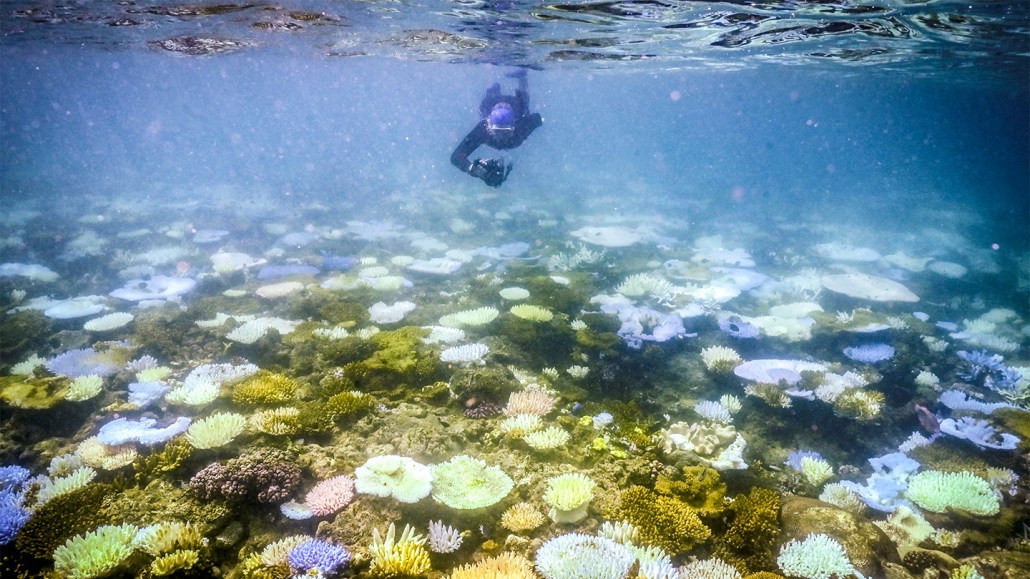
Oceans
The seas’ record-breaking hot streak may bring unwelcome changes
Off-the-charts warming could fire up more hurricanes, intensify coral bleaching and accelerate the melting of Antarctic sea ice.
By Nikk Ogasa
Come explore with us!

Off-the-charts warming could fire up more hurricanes, intensify coral bleaching and accelerate the melting of Antarctic sea ice.

From the manufacturing of our favorite devices to using them for social interactions, our digital lives can have a big climate impact.

This dangerous trend appears relatively new — and growing. Studies also have begun linking it to our warming world.

The salty gel absorbs more water from the air than similar gels, even in desert climates. This could provide clean water for drinking or farming.

Living corals could be frozen for safekeeping. Scientists could later revive them to restore reef ecosystems that are withering in warming seas.

In a mountaintop experiment, a laser beamed at the sky created a virtual lightning rod that snagged several bolts.

The sun creates energy through nuclear fusion. Now scientists have too. This achievement raises hopes for developing a new type of clean energy.

Nations are charting how they might ‘zero’ out their releases of climate-warming gases. Success might greatly lower the risks of climate catastrophes.

Researchers wanted to study the health effects of wildfire smoke. But they realized they didn’t know where it was and how much exposure people had.

This is bad news as a warming planet leads to growing numbers of excessive heat waves — and millions more people facing potentially deadly temperatures.